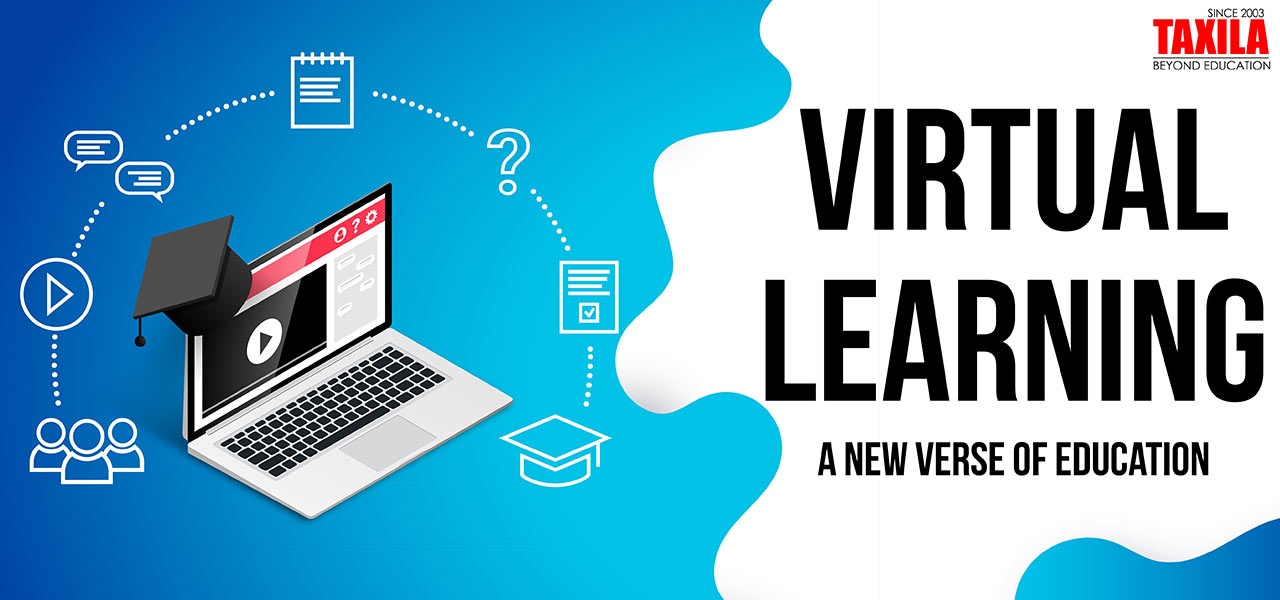
The invention of the Internet has definitely proved itself as a mother to various related inventions like digitalization of the work system, Artificial Intelligence, virtual reality and digital workspace etc. Online Education is one of the key integrations of the internet and regular education that has paved the way, for teachers and students, to ease teaching and learning. Several types of online education methods are available, including virtual examinations, online learning with or without tutoring, and other forms. As the market for e-learning classes expands, it will soon be a tough competitor for generic offline classes. Backed by the wide availability of high-speed internet, making use of cutting-edge technologies such as 4G and the soon-to-be-released 5G, digital literacy is expected to grow by leaps and bounds in the foreseeable future. India is the second-largest platform for online education. The edtech (Educational Technology) market is expected to reach US$ 4 billion by 2025, from US$ 750 million in 2020.
Due to the outbreak of COVID in India, almost all educational institutes were forced to adapt to online teaching. This required the teachers to teach on video conferencing platforms like Microsoft Teams, Zoom, Google Meet etc. This system faced a huge backlash from several problems, like:
- Poor Internet and lack of required devices - Many students were not equipped with Android phones, tablets, or laptops. This was the major challenge for parents, who were already facing financial problems, to buy the required devices and afford tuition fees. Worst case, many students have to drop out of school for this reason. On the other hand, if teachers were provided with the facility, then the issue of low bandwidth was very common.
- Teachers lacked training on how to use digital platforms or computers, which made the whole education industry change the training procedure for teachers with the major goal of making them well capable of adapting easily to any education-related problem they might face.
- The lack of proximity nearly shattered the teacher-student relationship, which is an integral key for teachers to understand the psychology of learning and development in students. Likewise, for students to understand what the teacher is trying to teach is as well the most important process of learning. In online classes, it was observed that doubt clearing and assuring that students understood the concept was less, which led to a decline in the resulting score graph of students.
- In Indian culture, teachers have a level of respect higher than God because they are the prime source of nurturing the raw talent of students and developing them for a brighter future. but I think this generation has considered teachers as a model to tease and bully. Using online privacy to camouflage their identity, students were constantly teasing and bullying the teachers during the video conference. This kept some teachers in constant trauma. I think it's not an issue that is present because of online platforms but because of the unethical spine and lack of discipline.
- Learning from home is an astounding encounter. You may anticipate that things around you should resemble school grounds. Be that as it may, at home things are diverse. For instance, you may need a gigantic study hall, parks, jungle gyms, containers, companions, instructors around you to direct and learn. However, with internet learning, you need to oversee everything in one room with guardians around you. You can be quickly flustered by little things at home. It is because you are apt to the proximal ecosystem of education that has been provided by the school, now the sudden change in the ecosystem of learning has hindered the learning psychology of a student.
In my point of view, these problems are highly crucial at the initial stage of virtual learning for the time being and it needs to be resolved as soon as possible. The reason for taking strict action at the earliest is that these problems are affecting the credibility of the online learning industry as a whole. If in upcoming days any lockdown does not take place then the retention of consumers will become a tough deal for the E- Learning providers. Now, how can we fix these issues, let's jot those points down:
- Retraining of teachers should be done with a prime objective to make them adaptable to any educational technology. Even if lockdowns are off the scene and usual classes are going on then as well teachers should use those technologies to modify the learning experience for the students.
- Making sure that proper devices are with the majority of students is a must because if not, it will hamper their studies a lot. A high-speed connection should be provided to teachers because any turbulence in teaching can clearly distort the flow. I believe any education institute must have a dedicated IT team that can work with faculty to troubleshoot and even train them on using the resources in an optimum manner.
- The involvement of parents is necessary as well. So, parents should be advised that if they are available then make them a part of a class or a class activity. This will confirm a decorum and discipline that needs to be there in a lecture.
- Timely feedback should be taken from students and parents to seek information about the quality of teaching, doubt clearing, and teacher interaction. This can help in creating a healthy ecosystem that will suffice the process of skill nurturing and development, as true feedback will provide genuine guidelines that a student requires at an initial stage.

Animesh
Student (Batch T-26)

